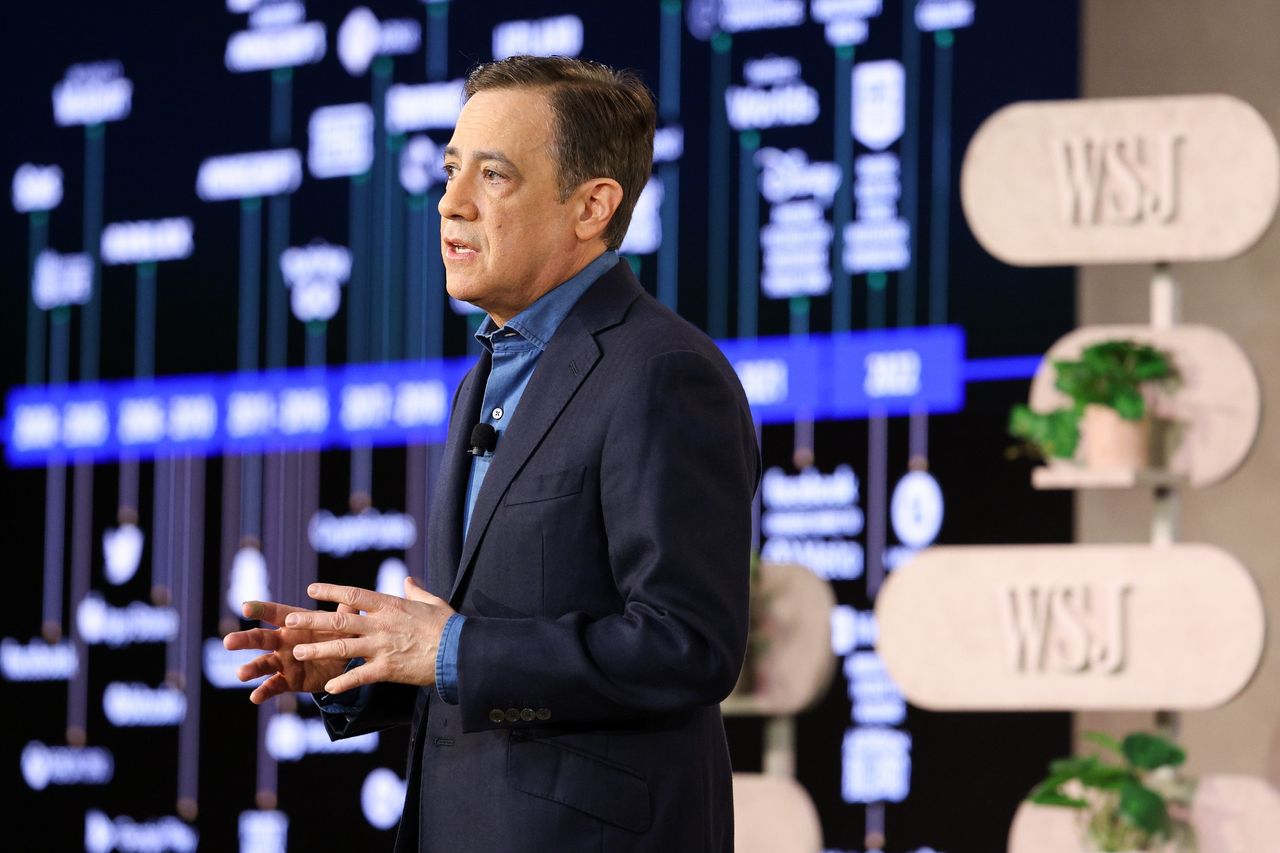When Will I Retire? How About Never
For many people, the idea of stopping work is a nonstarter—an inevitable path to boredom, ill health and a life devoid of meaning
Many workers of a certain age are counting down to a long-anticipated retirement date. They relish the opportunity to do things they’ve never had the time for. Or to do nothing.
Others are desperate to retire but can’t, as financial circumstances keep them in the workforce while others their age are stepping out.
But then there are the folks who dread such a day ever coming, who hope to sidestep it entirely, and plan to never retire. What drives people to keep working long past the age when they could comfortably leave the workforce? What benefits are they gaining that those who retire might miss out on?
We reached out to Wall Street Journal readers who fit into that last category, mostly 60 or older, to learn about their thinking. Here is some of what they shared.
Better than crossword puzzles
I’ll retire at my funeral. At 70 years of age, I totally enjoy my practice as an investigative attorney concentrating in locating missing people, especially long-term absentees. I am actually being paid to solve puzzles and assist people and businesses. This is more fun than doing crossword puzzles and cryptograms—although I enjoy those activities. too, when I have a spare moment.
My plan is influenced by my father’s example. He was a powerful and much-loved part of my life, and he worked three or four days a week until he could no longer do so at age 78. I have a friend who is still involved in the investigative profession in his mid-80s. A mentor of mine also worked into his early 80s and I had a law-school professor who taught well into his 90s. He lived past 100.
- Charles-Eric Gordon, age 70, Plainview, N.Y.
An energized empty-nester
At a time when a growing share of my family, friends and former co-workers are planning for or moving into retirement, I’m going in the opposite direction. Life’s twists and turns led me to take a break from my career, to raise my children when they were young. Then I took another unplanned break for family caretaking. After this latest hiatus, I’m an energized empty-nester with new passions and interests.
I just relaunched my career in March, giving a twist to my prior track. My work now is energizing and I’m enjoying the human interaction and learning. With the new flexible workplace—one of the few positive outcomes of the pandemic—spending time with family, traveling and many of the joys of retirement are now available to the working. I’ve just bought a lakeside cabin from which I will pursue my fully remote job.
Also, my financial adviser recommends planning to live to 100. Why quit?
- Nancy Murphy, 59, Ponte Vedra Beach, Fla.
A lesson in life and death
My father told his father, who was a judge, to retire at 66. The day my grandfather turned in the keys to his office he suffered a stroke. He died three days later. My father, who was just 33 at the time, blamed himself, thinking that he had forced his father into becoming a useless member of society.
My father is 88 now, and a doctor. Had it not been for the pandemic, he would still be working today. He had done everything necessary to stay active and up-to-date on the latest technologies. I can see how much finally being forced to end his working life has impacted him.
I myself do not plan to ever retire until I cannot physically work. Technology has made incredible advances that allow for workers to contribute without the wear-and-tear of needing to travel or commute as much. I believe there is room for old-timers for a long time, and this will only get better as virtual reality and artificial intelligence facilitate the application of experience. No to retirement. I refuse to die.
- Juan Gallardo, 62, Miami, Fla.
I’m in demand
Why retire now? Labor demand exceeds labor supply. This is the tightest labor market I have ever seen in my career.
As a baby boomer who remembers when the competition was fierce for every position early in my career, this is a welcome phenomenon.
In this rapidly changing work world, once you leave corporate America, it will be very difficult to return should you choose. Think long and hard before you make that retirement decision.
- Eric J. Letendre, 67, Charleston, W.Va.
No purpose, no value
You have worked in your profession for decades, perhaps even all your life. This is a part of you, perhaps too big a part. One day, you turn that part of your life off. OK, income loss aside, what are you going to do now? Get caught up on home projects? OK, after a couple of weeks, couple of months, those items are taken care of. Play some golf? Sure, but after a couple of months, that’ll get old. Travel the world? Great, if that’s your thing, but it too will get old.
So what do you do with all your free time? Just like muscles that atrophy if you don’t use them, so too will your brain and cognitive abilities. You need to have engaging, stimulating activities planned. Otherwise, you will slowly wither and die, with no purpose in life, no value to others.
My wife retired several years ago. She now believes it was one of the worst decisions of her life. Getting back into the workforce will be difficult to impossible; she has been out for a while and companies do not want to hire older folks. Volunteering is not her thing—why work and not get paid? She is at a loss for what to do with her free time.
And then there is that health-insurance conundrum: Doctors do not want to deal with you if you are on Medicare because of low reimbursement rates and slow pay.
So for me, that answer is: Keep working as long as I enjoy the work itself and until I get handed my hat and shown the door.
- Mike Drabicky, 70, Dallas
A widower’s perspective
I am a widowed physician, age 72. I continue to enjoy the intellectual stimulation of my profession, the social contact, and the importance of the care I provide for people, which continues to give my life meaning. I have three young-adult children to whom I would like to eventually leave some type of inheritance. Working allows me to minimize depleting my retirement accounts, thus leaving more assets for them.
If my spouse were still alive, I might have retired and been able to travel or enjoy other leisure pursuits, including taking care of her in old age. Those activities complete the process of a lifelong loving marital commitment, which is a process of growth even as you age. When marital love is gone through death, love can still turn outward to others and be fulfilling in service to others. I am lucky to be a physician and in particular a Catholic physician who can bring some level of Christ’s healing touch in the most intimate of ways. Why would anyone want to stop doing that?
- Robert Domaleski, 72, Littleton, Colo.

A question of self-worth
Retire? Why in the world would I do that to myself? Why would anyone?
As humans, our self-worth is defined by the things we do and the impacts we have on others. As biological machines we must keep moving and learning to maintain our brain and body. As spiritual beings we only flourish when we’re engaged with others. Whether our continued movement, learning and engagement comes from staying at our regular job, changing career tracks entirely, starting a new business, teaching or doing nonprofit work matters not. All that matters is that we keep pushing ourselves with the same zeal and purpose we’ve always shown in our earlier work life.
My father retired, and then sat down in front of the TV and watched his health decline as he became detached from the world. Contrast his experience with those who stayed in the game and remained actively engaged as they aged. Which path will you choose? Which path will give you the most enjoyment from the life you have left?
So, while I may change what I do (and worry less about money as I do so), there’s no way I’ll ever retire. I’ve got too much left to contribute to even think about it.
- Robert Green, 61, St. Augustine, Fla.
A chance for personal growth
I work at the intersection of business and technology, and I find it intellectually stimulating to identify opportunities and enable growth in a field that is constantly evolving and disrupting. I often wonder why one ever really needs to retire in today’s world.
Personally, I would rather be involved in a role that builds upon my years of experience in the workforce—not for financial gain, but for my own growth and learning. I feel that these “retirement” years are a time when one’s commitments and obligations are no longer barriers to intellectual curiosity. I am free to contribute everything I have collected over my 40+ working years in a way I see as most enjoyable and meaningful to me.
By leveraging my years of experience, I can bring a unique perspective to my work and mentor younger colleagues and that can also provide a sense of purpose and fulfillment
Finally, the freedom to explore uncharted areas in my field of interest without fear and undue stress and expectations by itself is a reward in this journey.
- Srinivasan Raghunathan, 63, Plainsboro, N.J.
Finally in control
I started formally working at 14. As I sit here today, age 73 and feeling like 30, I simply cannot imagine not working. I just enjoy it too much.
I made the decision a few years ago to change how I do it. I left my old firm and took control. Now, I select the clients, the cases I find interesting. I am now able to do a lot of pro bono work for people who simply cannot afford professional services but are desperately in need of them.
I enjoy being relevant, productive and making contributions. I enjoy being happy. I will continue to work as long as I am in control. Slowing down—YES. Changing how I work—ABSOLUTELY. Actually retiring—NEVER!
- Kristine Arlitt, 73, Frisco, Texas
Priests only get better with age
As a 65-year-old Franciscan friar and Catholic priest, I have no intention of fully retiring. Last summer we had a gathering of “younger” friars from around the country to plan and vision for the future. “Younger” meant anyone 65 or under.
Unlike professions or trades where someone may retire because they can no longer perform their physical duties, they can no longer handle the accumulated stress, or there are young people coming up through the ranks to replace them, a priest can perform his duties at a high level into his 80s or in some cases his 90s. Even at our “retirement houses,” the guys are constantly being called upon to fill in for a priest who’s sick, or cover a parish for a pastor so he can take some vacation days. And despite the fact that at some parishes people have opted out of attending Mass in favor of watching online, there is no possibility, at least at this point, of robots replacing priests in terms of administering the sacraments.
Ideally, the most precious gifts that a priest acquires from his experience in the field are wisdom, compassion and—God willing—holiness. While you may not want to go to a surgeon whose eyes are failing, or hire a musician suffering from debilitating arthritis, assuming a priest is still mentally fit, he can actually get better at what he’s ordained to do well into his golden years.
Surveys show that nuns and priests have among the highest satisfaction levels of any profession. Most of us love what we do, and don’t want to stop. And in most parts of this country, and most places around the world, the demand is surely there.
- Father William “Jud” Weiksnar, 65, Buffalo, N.Y.
‘Type-A weirdo’
“When I’m on the wrong side of the grass” is what I tell my colleagues. Fortunately, I love what I do as a medical professional in a big city hospital. I’m a competitive Type-A adrenaline weirdo so the usual retirement pursuits leave me bored. I thrive on chaos, confusion and disorder at work. I could have retired four years ago because my wife and I have good jobs and no kids. My wife who is “normal” (and nine years my junior) will probably retire in a few years, but I will soldier on.
- David Li, 59, Toronto
The karate senior
For over 50 years, I owned a karate academy. The pandemic forced me to close the school. At 75, I thought my vocation would be over. But I still wanted to continue teaching. Now I go to my clients’ homes, or they come to my house where I turned my garage into a functioning dojo (gym).
I love what I do, which keeps me active and in good shape. My clients are interesting people, and some of them have been with me for over 30 years. Teaching keeps my brain sharp because I need to always think about what I’m teaching and why. My father passed away at 102 and God willing, I’ll live as long and continue to be inspired to teach.
- Emil Farkas, 76, Los Angeles
Healthcare concerns
My husband and I have saved all of our lives for retirement, and have been assured by our financial adviser that we can retire at any time. My husband is semiretired with a flexible schedule. We both would love to travel more and spend more time with our grandson.
I would retire tomorrow if I could purchase affordable health insurance that offered adequate coverage should my husband or I be diagnosed with a serious illness. What worries me most is the effect a devastating health diagnosis would have on our future. Without good health insurance, we could lose all of our retirement savings. And, I also want to make sure my husband and I are able to choose where we get our care.
So, until I can find health insurance that offers choices on providers and adequate coverage in case of catastrophic illness, I will continue to work. Fortunately, I love my job.
- Colleen Brown, 60, Portsmouth, N.H.
Challenged at work
I like going to my office and being surrounded by challenging bright minds. It’s not solely the young or old minds that keep me coming back, but rather a combination—a mix of the new insights I glean from long-tenured co-workers, even after 32 years, and the new ideas, methods, and visions that our recent college graduates bring.
The office is a dynamic environment: No matter the task at hand, the office is never the same two days in a row. It makes everything richer.
I feel losing that environment could be unhealthy and make me feel bored. I am not a camper. I do think of taking more trips but I like the income coming in!
- Elizabeth Kogen, 58, Chicago
Motivated by fear
While I would really like to retire—as much for my wife as myself—I am so scared of not having enough money I just do not see any way I can. This has become especially true with the recent stock market issues.
I believe that I will have to be working to 70 at least. At times I worry about my wife and me. I have heard of plenty of couples who, when they retire, find they have nothing in common, and that scares the crap out of me.
- Edward Fultz, 64, Littleton, Mass.
Listening to myself
I know that I am susceptible to listening to external sources rather than relying on my own internal wisdom. So I resolved a few of my own issues that made me uncomfortable around the retirement discussion.
I identified four “handrails” that are important to me in any transitional period: 1) purpose, 2) structure, 3) financial security, and 4) health.
When I looked closely, I recognized that in my current work, all four of my handrails are in place and are supporting me. And when I listen to my internal wisdom (rather than the social tropes about retirement), I realize that I love what I am doing and there is no reason for me to change anything about the trajectory of my life, unless I want to. Which I don’t.
I am very happy doing just what I do and have no plans to retire. Ever.
- Ricka Robb Kohnstamm, 66, St. Paul, Minn.
 Copyright 2020, Dow Jones & Company, Inc. All Rights Reserved Worldwide. LEARN MORE
Copyright 2020, Dow Jones & Company, Inc. All Rights Reserved Worldwide. LEARN MORE
This stylish family home combines a classic palette and finishes with a flexible floorplan
Just 55 minutes from Sydney, make this your creative getaway located in the majestic Hawkesbury region.
The marketplace has spoken and, at least for now, it’s showing preference for hybrids and plug-in hybrids (PHEVs) over battery electrics. That makes Toyota’s foot dragging on EVs (and full speed ahead on hybrids) look fairly wise, though the timeline along a bumpy road still gets us to full electrification by 2035.
Italian supercar producer Lamborghini, in business since 1963, is also proceeding, incrementally, toward battery power. In an interview, Federico Foschini , Lamborghini’s chief global marketing and sales officer, talked about the new Urus SE plug-in hybrid the company showed at its lounge in New York on Monday.

Lamborghini
The Urus SE SUV will sell for US$258,000 in the U.S. (the company’s biggest market) when it goes on sale internationally in the first quarter of 2025, Foschini says.
“We’re using the contribution from the electric motor and battery to not only lower emissions but also to boost performance,” he says. “Next year, all three of our models [the others are the Revuelto, a PHEV from launch, and the continuation of the Huracán] will be available as PHEVs.”
The Euro-spec Urus SE will have a stated 37 miles of electric-only range, thanks to a 192-horsepower electric motor and a 25.9-kilowatt-hour battery, but that distance will probably be less in stricter U.S. federal testing. In electric mode, the SE can reach 81 miles per hour. With the 4-litre 620-horsepower twin-turbo V8 engine engaged, the picture is quite different. With 789 horsepower and 701 pound-feet of torque on tap, the SE—as big as it is—can reach 62 mph in 3.4 seconds and attain 193 mph. It’s marginally faster than the Urus S, but also slightly under the cutting-edge Urus Performante model. Lamborghini says the SE reduces emissions by 80% compared to a standard Urus.
Lamborghini’s Urus plans are a little complicated. The company’s order books are full through 2025, but after that it plans to ditch the S and Performante models and produce only the SE. That’s only for a year, however, because the all-electric Urus should arrive by 2029.

Lamborghini
Thanks to the electric motor, the Urus SE offers all-wheel drive. The motor is situated inside the eight-speed automatic transmission, and it acts as a booster for the V8 but it can also drive the wheels on its own. The electric torque-vectoring system distributes power to the wheels that need it for improved cornering. The Urus SE has six driving modes, with variations that give a total of 11 performance options. There are carbon ceramic brakes front and rear.
To distinguish it, the Urus SE gets a new “floating” hood design and a new grille, headlights with matrix LED technology and a new lighting signature, and a redesigned bumper. There are more than 100 bodywork styling options, and 47 interior color combinations, with four embroidery types. The rear liftgate has also been restyled, with lights that connect the tail light clusters. The rear diffuser was redesigned to give 35% more downforce (compared to the Urus S) and keep the car on the road.
The Urus represents about 60% of U.S. Lamborghini sales, Foschini says, and in the early years 80% of buyers were new to the brand. Now it’s down to 70%because, as Foschini says, some happy Urus owners have upgraded to the Performante model. Lamborghini sold 3,000 cars last year in the U.S., where it has 44 dealers. Global sales were 10,112, the first time the marque went into five figures.
The average Urus buyer is 45 years old, though it’s 10 years younger in China and 10 years older in Japan. Only 10% are women, though that percentage is increasing.
“The customer base is widening, thanks to the broad appeal of the Urus—it’s a very usable car,” Foschini says. “The new buyers are successful in business, appreciate the technology, the performance, the unconventional design, and the fun-to-drive nature of the Urus.”
Maserati has two SUVs in its lineup, the Levante and the smaller Grecale. But Foschini says Lamborghini has no such plans. “A smaller SUV is not consistent with the positioning of our brand,” he says. “It’s not what we need in our portfolio now.”
It’s unclear exactly when Lamborghini will become an all-battery-electric brand. Foschini says that the Italian automaker is working with Volkswagen Group partner Porsche on e-fuel, synthetic and renewably made gasoline that could presumably extend the brand’s internal-combustion identity. But now, e-fuel is very expensive to make as it relies on wind power and captured carbon dioxide.
During Monterey Car Week in 2023, Lamborghini showed the Lanzador , a 2+2 electric concept car with high ground clearance that is headed for production. “This is the right electric vehicle for us,” Foschini says. “And the production version will look better than the concept.” The Lanzador, Lamborghini’s fourth model, should arrive in 2028.
This stylish family home combines a classic palette and finishes with a flexible floorplan
Consumers are going to gravitate toward applications powered by the buzzy new technology, analyst Michael Wolf predicts























